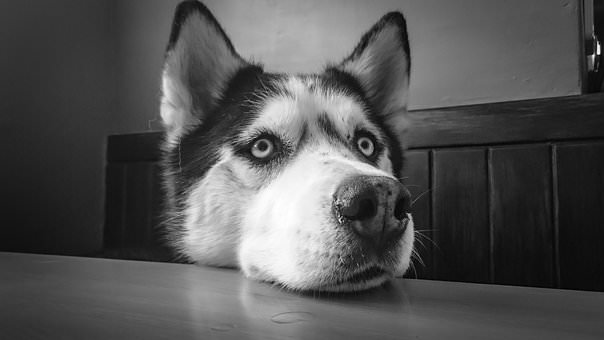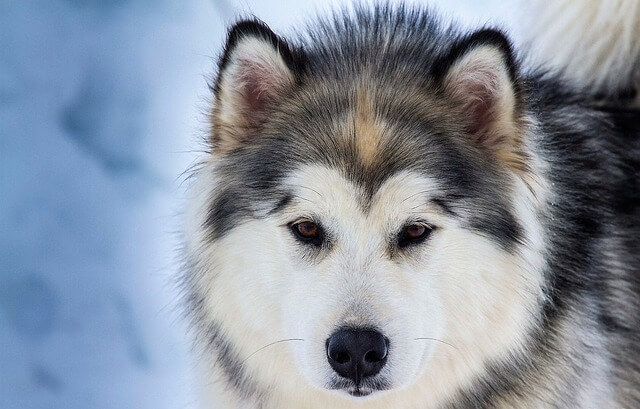Siberian Huskies are energetic, fun, and sociable dogs. They are typically very healthy and interested in anything that you are. Certain diseases and disorders seem to crop up more frequently in particular breeds of dogs, known as breed associated disorders. Each type of dog has its own list, but many of the issues are shared by multiple breeds, and very few are exclusive to a single breed.
Here are a few things that Husky owners should know about.

1. Skin Disease
Huskies can suffer from atopic dermatitis (which is an allergy to something that is inhaled, like pollen, mold or dust), that manifests itself on the skin. It affects many dogs, (even mixed breeds) and is one of the most common skin diseases seen in a veterinary practice. Affected dogs will lick their paws and even bite their nails. Many owners notice itching is the first sign of a problem, but atopic dogs will often have hair loss and an odor to their skin. Huskies may have some increased risk for atopy. There are things that you can do to minimize the impact of atopy, including supplements and strategies to reduce the antigens and your dog’s reaction to them. Ask your veterinarian if your dog needs to see a veterinary dermatologist.
Huskies can also suffer from less commonly seen skin diseases, like follicular dysplasia and other immune-associated skin issues. One of the immune diseases, Vogt-Koyanagi-Harada Disease, causes skin and ocular problems. Huskies can experience benign pigment changes in which hair and/or skin lighten. If you notice hair loss or pigment changes in your Husky, be sure to alert your veterinary team. They can help you know what to expect for your dog and recommend a treatment protocol or tell you if treatment is required at all.

2. Ocular disorders
Huskies are over-represented for certain eye disorders. Some people estimate that 10% of Huskies suffer from juvenile cataracts, which can lead to blindness. They can experience entropion, which is when the haired eyelid folds in and rubs the cornea. Entropion must be surgically corrected for your dog’s comfort and health. Since you are now aware that Huskies can suffer from ocular disorders, make sure you have your Husky’s eyes evaluated by your vet (and possibly a veterinary ophthalmologist) to see if there is anything that you need to do to help your dog.

3. Metabolic Disease
According to the Thyroid Database at Michigan State, Huskies are #27 on the list of dogs predisposed to hypothyroidism. The most common cause of thyroid disease is an immune-medicated thyroiditis. Basically, this means that a dog’s body is attacking its own thyroid tissue by mistake and this is thought to be a genetic or heritable condition. Be sure that your Husky has a blood sample for thyroid levels checked according to your vet’s own protocol. If your dog does have hypothyroidism, he/she should be treated appropriately and the prognosis is good for satisfactory management of this issue.
Huskies are lovely and entertaining. Because they are so healthy overall, it is important that you prioritize preventive vet care and not just wait until they seem sick. As enthusiastic as they can be, you might not realize there is a problem and it could progress if left untreated. Keep your friend healthy by including your veterinary team all along the way!
Do you love Huskies? Follow me on Facebook to learn more about all animals and laugh at fun photos and heartwarming stories, by clicking here.
